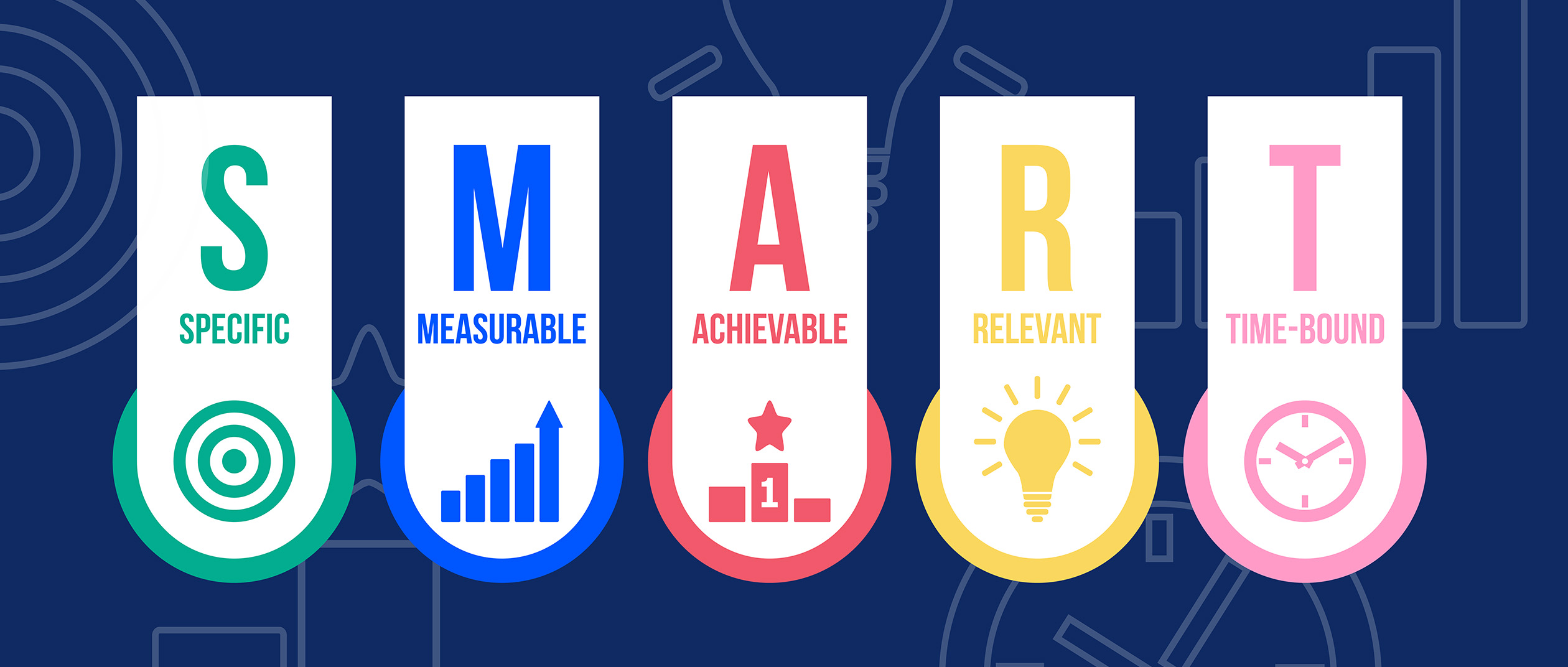Use our SMART Template to set clear and actionable goals for your business. This framework helps you focus your efforts, track progress, and achieve success by breaking objectives into manageable, result-driven steps.
The following article, including our SMART Template is available to download as an editable PDF file here: SMART Template
Understanding SMART
Goals should challenge you but remain within reach. SMART is an acronym that provides a structured approach to setting clear, achievable business objectives. Clearly defined goals eliminate ambiguity and create a focused path forward. When goals are specific, everyone involved understands the exact outcome you aim to achieve, making it easier to align efforts and resources. Metrics are the foundation of goal tracking. A measurable goal ensures that progress and success can be quantified. Consider numbers, percentages, or other concrete benchmarks to gauge performance. Unrealistic objectives can demotivate teams, while attainable ones inspire confidence and forward momentum. Make sure your goals match your current resources and capabilities.
Typical uses of a SMART analysis
Strategic planning.
Businesses use SMART goals to craft actionable strategies that align with their broader objectives.
For example, a small business aiming to expand its customer base SMART goal could be:
- Specific: Increase new customer acquisitions
- Measurable: By 20%
- Achievable: Through targeted online advertising and local partnerships
- Relevant: To support our new sales target
- Timebound: Within 6 months.
Breaking down this objective into the SMART framework makes it easier to identify the necessary steps, allocate resources, and measure progress effectively.
Performance management
SMART goals are also invaluable for evaluating and improving individual and team performance. Managers can set specific, measurable employee objectives, ensuring alignment with company goals. For instance, a sales team might aim to close 15 new accounts worth $5,000 each by the end of the quarter. This approach provides clear expectations, encourages accountability, and makes performance reviews more meaningful by tying achievements to tangible results.
Project execution
When launching new initiatives, SMART goals help ensure projects stay on track and deliver results. For example, a business introducing a new product could set a goal to achieve
$200,000 in sales within the first three months of launch. The SMART framework helps project managers break the goal into actionable tasks, monitor progress, and adapt to achieve the desired outcome.
Implementation Tips
- Review goals quarterly
- Remain flexible
- Celebrate incremental achievements
- Adjust goals as business evolves
The Stuff We Need To Say
This content is for general information purposes only. It is not to be relied upon as financial, tax, or investment advice or guarantees about the future, nor should it be considered a recommendation to buy or sell. You should consult your own professional advisor for specific financial, investment, and/or tax advice tailored to your needs to ensure that individual circumstances are considered properly and action is taken based on the latest available information.



